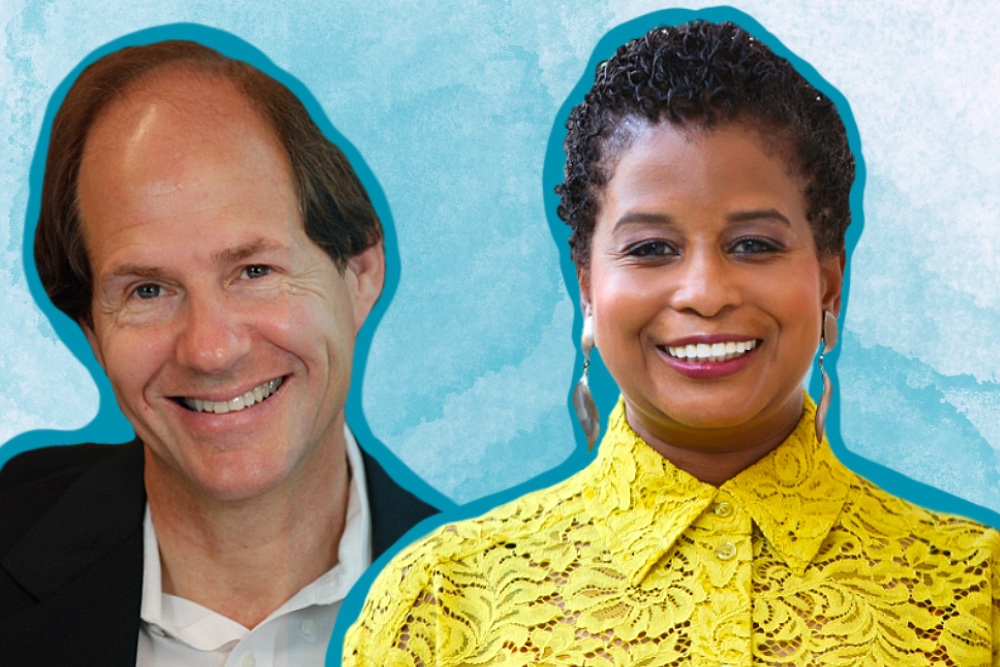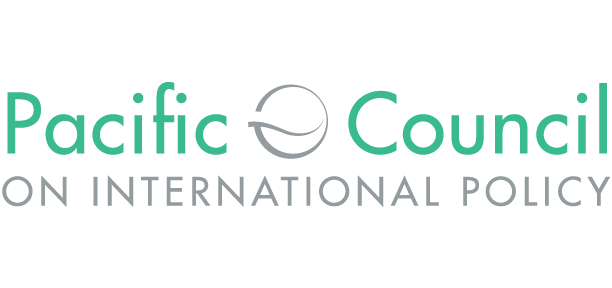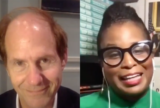
From left to right: Cass R. Sunstein and Nikita Stewart.
To merely open a bank account or secure a driver’s license, people around the world face one common barrier: paperwork. Americans, in fact, spend 11.4 billion hours a year on federal paperwork alone. Harvard legal scholar Cass R. Sunstein, former administrator of the White House Office of Information and Regulatory Affairs, has a name for this kind of drudgery: sludge. Sludge, he argues, doesn’t just cost time, money, and dignity—it does an immense amount of damage to society’s most vulnerable people. Bureaucratic red tape—“volokita” as it’s known in Russian—hinders everything from gaining access to food to securing healthcare. How could less paperwork help the least wealthy, least healthy, and least educated improve their station in life? Have any countries or institutions figured out what it would take to make this happen? Sunstein, author most recently of Sludge: What Stops Us from Getting Things Done and What to Do about It, visits Zócalo to talk about eliminating the piles of paperwork obscuring our path to a more equal world.
The Takeaway
The Paperwork Poverty Trap
How Forms, Long Lines, and Other Types of Bureaucratic Sludge Hold Everyone Back—Especially the Most Vulnerable
Cass R. Sunstein has thought a great deal about sludge. No, not the wastewater treatment byproduct, but the “yucky stuff” we are all doomed to encounter in our daily lives, …





